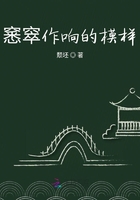These contradictions need not lower the great Father of Neoplatonism in our eyes, as a moral being. All accounts of him seem to prove him to have been what Apollo, in a lengthy oracle, declared him to have been, "good and gentle, and benignant exceedingly, and pleasant in all his conversation." He gave good advice about earthly matters, was a faithful steward of moneys deposited with him, a guardian of widows and orphans, a righteous and loving man. In his practical life, the ascetic and gnostic element comes out strongly enough. The body, with him, was not evil, neither was it good; it was simply nothing--why care about it?
He would have no portrait taken of his person: "It was humiliating enough to be obliged to carry a shadow about with him, without having a shadow made of that shadow." He refused animal food, abstained from baths, declined medicine in his last illness, and so died about 200 A.D.
It is in his followers, as one generally sees in such cases, that the weakness of his conceptions comes out. Plotinus was an earnest thinker, slavishly enough reverencing the opinion of Plato, whom he quotes as an infallible oracle, with a "He says," as if there were but one he in the universe: but he tried honestly to develop Plato, or what he conceived to be Plato, on the method which Plato had laid down. His dialectic is far superior, both in quantity and in quality, to that of those who come after him. He is a seeker. His followers are not. The great work which marks the second stage of his school is not an inquiry, but a justification, not only of the Egyptian, but of all possible theurgies and superstitions; perhaps the best attempt of the kind which the world has ever seen; that which marks the third is a mere cloud-castle, an inverted pyramid, not of speculation, but of dogmatic assertion, patched together from all accessible rags and bones of the dead world. Some here will, perhaps, guess from my rough descriptions, that I speak of Iamblichus and Proclus.
Whether or not Iamblichus wrote the famous work usually attributed to him, which describes itself as the letter of Abamnon the Teacher to Porphyry, he became the head of that school of Neoplatonists who fell back on theurgy and magic, and utterly swallowed up the more rational, though more hopeless, school of Porphyry. Not that Porphyry, too, with all his dislike of magic and the vulgar superstitions--a dislike intimately connected with his loudly expressed dislike of the common herd, and therefore of Christianity, as a religion for the common herd--did not believe a fact or two, which looks to us, nowadays, somewhat unphilosophical. From him we learn that one Ammonius, trying to crush Plotinus by magic arts, had his weapons so completely turned against himself, that all his limbs were contracted. From him we learn that Plotinus, having summoned in the temple of Isis his familiar spirit, a god, and not a mere daemon, appeared. He writes sensibly enough however to one Anebos, an Egyptian priest, stating his doubts as to the popular notions of the Gods, as beings subject to human passions and vices, and of theurgy and magic, as material means of compelling them to appear, or alluring them to favour man. The answer of Abamnon, Anebos, Iamblichus, or whoever the real author may have been, is worthy of perusal by every metaphysical student, as a curious phase of thought, not confined to that time, but rife, under some shape or other, in every age of the world's history, and in this as much as in any. There are many passages full of eloquence, many more full of true and noble thought: but on the whole, it is the sewing of new cloth into an old garment; the attempt to suit the old superstition to the new one, by eclectically picking and choosing, and special pleading, on both sides; but the rent is only made worse. There is no base superstition which Abamnon does not unconsciously justify. And yet he is rapidly losing sight of the real eternal human germs of truth round which those superstitions clustered, and is really further from truth and reason than old Homer or Hesiod, because further from the ******, universal, everyday facts, and relations, and duties of man, which are, after all, among the most mysterious, and also among the most sacred objects which man can contemplate.
It was not wonderful, however, that Neoplatonism took the course it did.
Spirit, they felt rightly, was meant to rule matter; it was to be freed from matter only for that very purpose. No one could well deny that.
The philosopher, as he rose and became, according to Plotinus, a god, or at least approached toward the gods, must partake of some mysterious and transcendental power. No one could well deny that conclusion, granting the premiss. But of what power? What had he to show as the result of his intimate communion with an unseen Being? The Christian Schools, who held that the spiritual is the moral, answered accordingly. He must show righteousness, and love, and peace in a Holy Spirit. That is the likeness of God. In proportion as a man has them, he is partaker of a Divine nature. He can rise no higher, and he needs no more. Platonists had said--No, that is only virtue; and virtue is the means, not the end.














